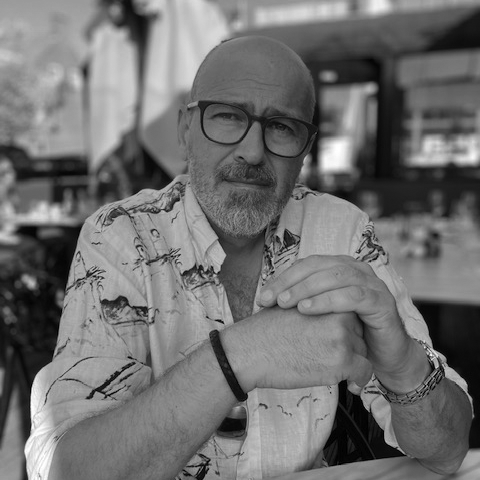Poetry in Small Language
translated from the Croatian by James Meetze
Cork, Ireland
is like a church bell
in some remote village
tolling mutely in the evening
through the musty provincial air
self-obliviously
and quite self-sufficiently
—one might add—
if it weren’t for the pair of those
ragged sheep
huddled before the rain
on the empty lot
in front of a stone barn
bobbing their whitish little heads
here and there
just to let you know
that regardless of medium
the message will always
arrive at the destination.
Poezija u malom jeziku
Cork, Irska
poezija u malom jeziku
je kao zvono
u zabačenom selu
što tuče muklo s večeri
kroz memlu provincije
samozaboravno
i poprilično samodovoljno
—reklo bi se—
da nije tih par kuštravih ovaca
skutrenih pred pljusak
u oboru
ispred kamene pojate
što malo-malo
trznu bjelkastim glavama
da ti daju do znanja
da bez obzira na medij
poruka uvijek
stiže na odredište.
Copyright © 2025 by Damir Šodan. Originally published in Poem-a-Day on September 8, 2025, by the Academy of American Poets.
“The poem was written in 2012 at the poetry festival in Cork, Ireland, after having heard some of the young Irish poets reading their poems originally written not in English but in Gaelic (Irish), the language of their ancestors that, for historical reasons, had to take the back seat, metaphorically speaking, in the powerful vehicle of Irish literature. It made me think [about] how the philosopher Martin Heidegger was indeed right when he said that ‘language is the house of being.’ For language is not only a tool for the affirmation of one’s cultural affiliation but also the medium for self-reflection. Poetry being the most sophisticated way of dealing with language is therefore of utmost importance when it comes to [the] preservation of one’s identity. The greatness of poetry does not depend on the ‘size’ of language but rather on the imagination and linguistic skills of those who write, or rather, compose it.”
—Damir Šodan
“Damir Šodan writes in Croatian, an objectively small language—and yet, in this poem, he evokes big feelings and widescreen, cinematic images of a village that collapses the space between his native Dalmatia (the southern coast of Croatia) and Cork, Ireland. He reckons with the traveler’s predicament: how to drink in the experience of a new place and not still long for home. And that is the message: home—both place and mother tongue—is always the lens through which one sees the world.”
—James Meetze

